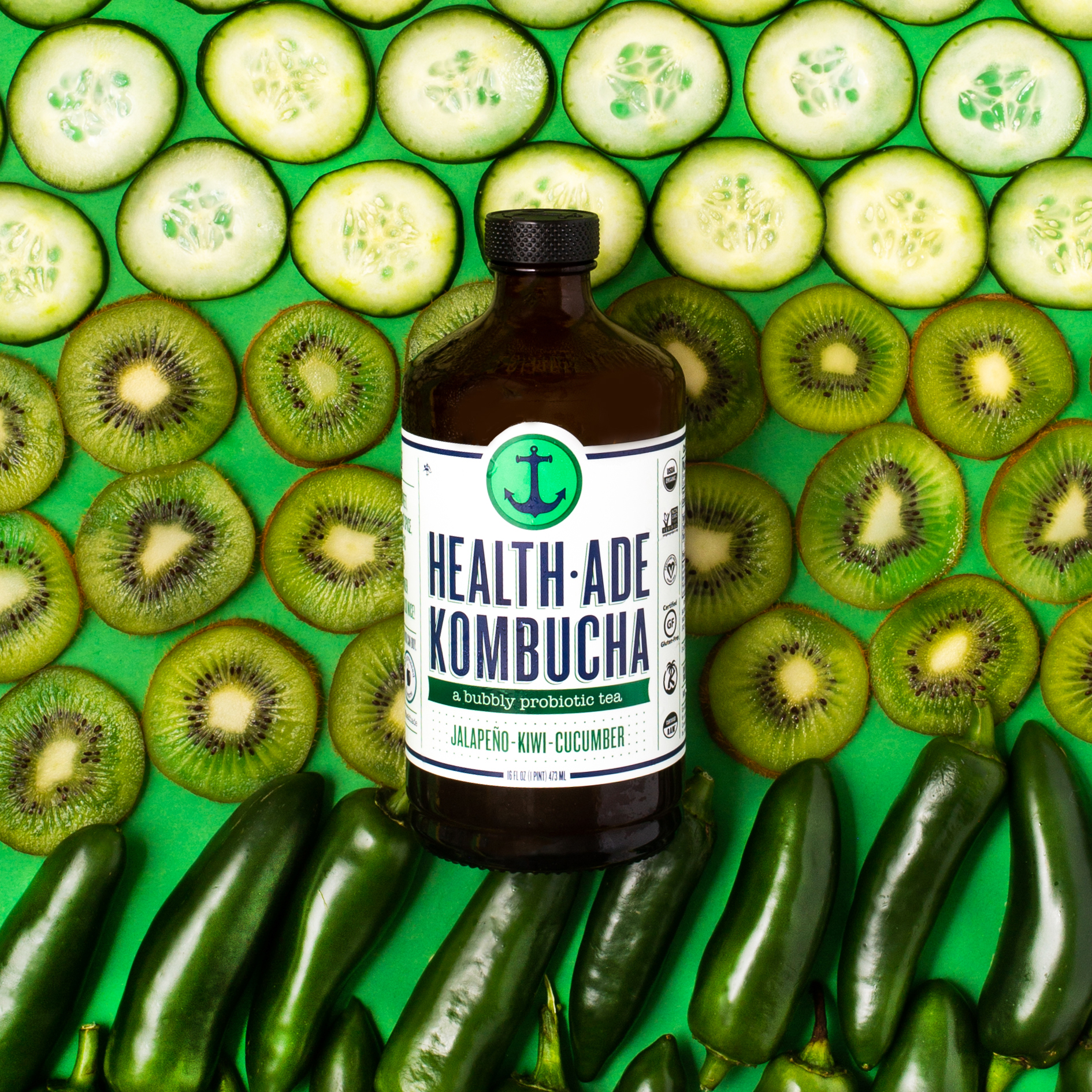Understanding Caffeine Content in Health-Ade Kombucha: Facts, Benefits, and Practical Guidance

Introduction: Why Caffeine Content Matters in Kombucha
Consumers increasingly seek beverages that are both flavorful and mindful of their health needs. Health-Ade Kombucha stands out as a popular fermented tea drink, but its caffeine content is often questioned by those sensitive to stimulants or looking to moderate their intake. Understanding how much caffeine is actually present, how it compares to other drinks, and how fermentation affects these levels is essential for making informed choices.
What Is Health-Ade Kombucha?
Health-Ade Kombucha is a fermented beverage made from sweetened black or green tea. The fermentation process uses a symbiotic culture of bacteria and yeast (SCOBY), transforming sugars and tea into a tangy, effervescent drink touted for its probiotic benefits. Because it is brewed from tea, caffeine is an inherent component, but the fermentation process alters its final concentration.
How Much Caffeine Is in Health-Ade Kombucha?
According to multiple verified sources, Health-Ade Kombucha contains between 8 mg and 15 mg of caffeine per serving , depending on flavor and fermentation time [2] [3] [4] [5] . This is significantly less than coffee (typically around 100 mg per cup) and even less than regular black tea (14-70 mg per cup) [1] . The specific caffeine amount can vary by flavor, batch, and how long the tea is fermented.
Why Does Health-Ade Kombucha Have Caffeine?
Health-Ade Kombucha starts with black or green tea, both of which naturally contain caffeine. During fermentation, yeast and bacteria metabolize some of the caffeine, but about one-third remains in the final product [2] . The remaining caffeine is enough to provide a gentle boost without the jitters commonly associated with coffee or energy drinks.
Fermentation and Caffeine Reduction
The fermentation process is key to lowering caffeine levels . As yeast and bacteria break down sugars and other tea compounds, they also consume some caffeine. The longer the fermentation, the lower the final caffeine content tends to be. For those highly sensitive to caffeine, seeking out Health-Ade flavors that undergo longer fermentation or are based on green tea (which starts with less caffeine) may be helpful [4] .
Health-Ade Kombucha vs. Other Beverages
| Beverage | Caffeine per Serving |
|---|---|
| Health-Ade Kombucha | 8-15 mg |
| Decaf Coffee | 8-15 mg |
| Regular Coffee | ~100 mg |
| Black Tea | 14-70 mg |
| KeVita Masterbrew Kombucha | ~68 mg |
| GT’s Kombucha | 4-8 mg |
This comparison illustrates that Health-Ade Kombucha is a lower-caffeine choice, suitable for those avoiding higher doses while still enjoying a flavorful beverage.
Who Should Consider Health-Ade Kombucha?
If you’re sensitive to caffeine, pregnant, or have medical reasons to limit intake, Health-Ade Kombucha offers a gentle alternative to coffee or caffeinated sodas. The modest caffeine content is unlikely to disrupt sleep or cause anxiety for most people, but individual reactions can vary. Some may still notice mild stimulation, especially if combining with other sources of caffeine throughout the day.
How to Find and Choose the Right Health-Ade Kombucha for Your Needs
To access Health-Ade Kombucha and select the appropriate flavor and caffeine level for your needs, consider these steps:
- Visit the official Health-Ade website and use their store locator tool to find retailers near you. The website provides up-to-date product information and nutritional profiles for each flavor [2] .
- Review the nutritional label on each bottle for caffeine content. While most flavors fall within 8-15 mg per serving, there may be slight variations.
- If you have special health considerations, consult your healthcare provider before adding kombucha to your routine.
- For online purchases, use the official Health-Ade website or reputable grocery retailers. Avoid unverified third-party sellers to ensure product authenticity.
If you cannot find a verified online store, you can search “Health-Ade Kombucha store locator” in your preferred search engine or visit your local natural foods retailer.
Practical Tips for Managing Caffeine Intake with Kombucha
Here are actionable steps if you’re concerned about caffeine sensitivity:

Source: berryvere.weebly.com
- Start with a small serving to gauge your body’s response.
- Opt for flavors with lower initial tea concentrations or longer fermentations.
- Avoid combining kombucha with other caffeinated drinks close together.
- Monitor your energy levels and sleep patterns when consuming kombucha regularly.
If you need to avoid caffeine entirely, look for brands or homemade kombucha recipes that use herbal teas instead of black or green tea, but note that authentic kombucha will always have some caffeine unless made with caffeine-free bases.
Potential Challenges and Solutions
Challenge: Finding caffeine information for every kombucha flavor. Solution: Always check the product’s nutritional label and consult the official Health-Ade website for specifics. If information is unclear, contact their customer support for clarification.
Challenge: Managing caffeine for sensitive individuals. Solution: Begin with small amounts, track reactions, and consult with healthcare professionals if uncertain.
Alternatives to Health-Ade Kombucha
If even the modest caffeine in Health-Ade Kombucha is too much, consider:
- Herbal teas, which are naturally caffeine-free.
- Water kefir, a fermented beverage made from sugar water or fruit juice that contains no caffeine.
- Home-brewed kombucha using caffeine-free tea bases, though this is not considered traditional kombucha.
Each alternative maintains some probiotic benefits but may differ in taste and nutritional profile.
Key Takeaways
Health-Ade Kombucha provides a low-caffeine, probiotic-rich option for those seeking alternatives to coffee or tea. With only 8-15 mg of caffeine per bottle, it is suitable for most people, including those aiming to cut back on stimulants. Always check product labels and consult with your healthcare provider if you have specific health concerns.

Source: scottseka.weebly.com
References
- [1] De La Calle (2022). Health-Ade Kombucha vs. De La Calle Tepache: Caffeine Comparison.
- [2] Health-Ade (2025). Everything You Need to Know.
- [3] Health-Ade (2019). Does Kombucha Have Caffeine? And How Much?
- [4] Yum Cha Tea Company (2025). How Much Caffeine is Really in Kombucha.
- [5] Health-Ade (2025). Ginger-Lemon Kombucha Product Info.